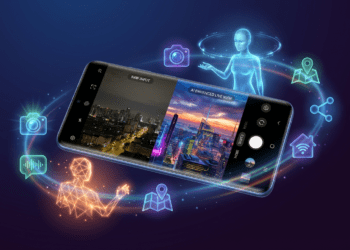Artificial Intelligence is reshaping many sectors, and healthcare is no exception. Recently, Elon Musk, the owner of X (formerly known as Twitter), stirred controversy by inviting users to share their medical images with Grok, the platform’s AI chatbot. While some see this as a step forward in AI-driven healthcare, others are raising red flags about privacy and ethical implications.
Elon Musk’s Invitation to Share Medical Images with Grok
In a bold move, Elon Musk suggested that users upload their X-rays, MRIs, CT scans, and other medical images to Grok. He believes that with enough data, the AI chatbot can improve its diagnostic capabilities. Musk stated, “This is still early stage, but it is already quite accurate and will become extremely good.“
His vision is that Grok could eventually provide quick and accurate medical diagnoses. Patients might not have to wait for doctors or portal messages. Instead, they could get immediate feedback or even a second opinion from the AI.
The Enthusiastic Response from Users
Following Musk’s suggestion, many users eagerly uploaded their medical images to Grok. Some were curious about the AI’s capabilities, while others genuinely sought medical insights. A user shared, “Had it check out my brain tumor, not bad at all,” along with an image of a brain scan.
Even some medical professionals joined in. They wanted to test the AI’s accuracy against their own findings. This engagement suggests a growing interest in AI’s role in healthcare diagnostics.

Medical Privacy Experts Raise Alarms
Despite the enthusiasm, medical privacy experts are concerned. Bradley Malin, a professor of biomedical informatics at Vanderbilt University, cautioned, “This is very personal information, and you don’t exactly know what Grok is going to do with it.”
The main worry is that users are sharing sensitive health data without understanding the potential consequences. Unlike interactions with healthcare providers, these exchanges with AI chatbots lack strict privacy protections.
Understanding HIPAA and Its Limitations
The Health Insurance Portability and Accountability Act (HIPAA) is a federal law designed to protect personal health information. It ensures that doctors, hospitals, and insurance companies keep patient data confidential. However, HIPAA only applies to certain entities and their business associates.
When users share medical images on social media platforms or with AI chatbots like Grok, HIPAA doesn’t apply. Matthew McCoy, an assistant professor of medical ethics at the University of Pennsylvania, pointed out that users might not realize the lack of privacy protections in these settings.
Potential Misuse of Health Data
Sharing health data on platforms without robust privacy policies opens the door to potential misuse. Companies could share or sell this information to third parties. Even if a platform promises not to sell data, it might share it with “related companies,” as X’s privacy policy mentions.
Imagine a scenario where a PET scan indicating early signs of Alzheimer’s becomes part of your online footprint. Employers, insurance companies, or even housing associations might access this information. This could lead to discrimination or loss of opportunities.
While laws like the Americans with Disabilities Act offer some protections, they don’t cover all situations. For instance, life insurance and long-term care insurance plans might legally discriminate based on health data.
Risks of Inaccurate AI Diagnoses
Another significant concern is the accuracy of AI diagnoses. While some users praised Grok’s assessments, others reported mistakes. One user mentioned that a broken clavicle was misidentified as a dislocated shoulder.
Such inaccuracies can have serious implications. Users might undergo unnecessary tests or treatments based on faulty information. According to Suchi Saria, director of the machine learning and healthcare lab at Johns Hopkins University, this could lead to unnecessary costs and potential harm.
Training an AI to provide accurate medical diagnoses requires high-quality data and expertise. Without these, relying on an AI chatbot is risky. It’s akin to a “hobbyist chemist mixing ingredients in the kitchen sink,” as Dr. Saria described.
Ethical Considerations in AI Healthcare
The integration of AI in healthcare brings ethical challenges. Users might not fully understand how their data is used or stored. There’s a lack of transparency about the AI’s training data and algorithms.
Moreover, there’s the issue of informed consent. Patients typically consent to how their medical data is used within healthcare settings. However, when sharing with AI chatbots, this consent is often absent or not fully informed.
Companies developing these AI tools have a responsibility to ensure data privacy and ethical use. Without clear guidelines and policies, users are left vulnerable.
Balancing Innovation with Privacy
AI has immense potential in healthcare. It can improve patient outcomes, assist in diagnostics, and streamline processes. Tools are already in use that read mammograms and analyze patient data for clinical trials.
However, innovation shouldn’t come at the expense of privacy and ethics. Users should be cautious about sharing sensitive information with AI tools that lack proper safeguards. As Dr. Malin suggested, unless you “strongly believe the information should be out there,” it’s better to refrain.
For AI to be effective and trusted in healthcare, developers must prioritize data security. Clear policies, transparency, and adherence to privacy laws are essential.
Conclusion
Elon Musk’s call for users to share medical images with Grok has sparked a debate. While the integration of AI in healthcare holds promise, it also brings significant privacy and ethical concerns. Users must be aware of the risks and exercise caution.
Healthcare providers, tech companies, and regulators need to collaborate. Together, they can ensure that AI advancements benefit patients without compromising their rights. As we navigate this new frontier, balancing innovation with responsibility is crucial.









Comments 3